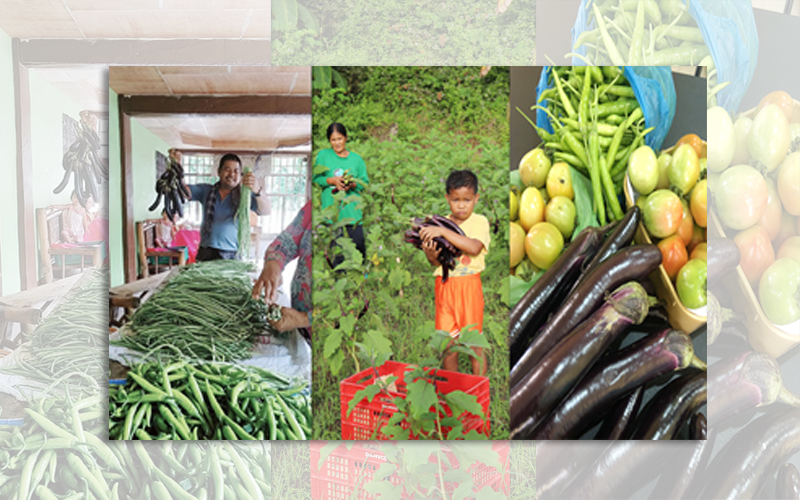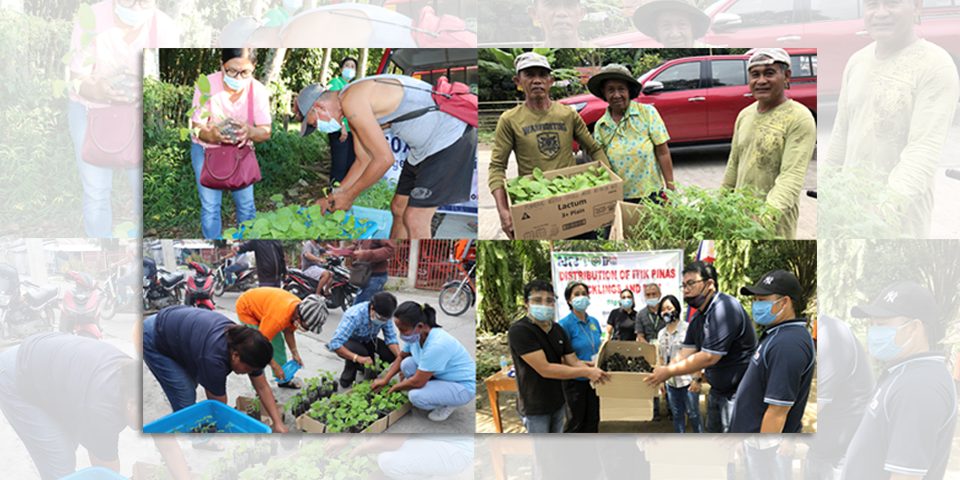
SOXAARRDEC: Kaagapay ng Magsasaka sa Krisis at Kalamidad
April 16, 2021
SOXAARRDEC: Kaagapay ng Magsasaka sa Krisis at Kalamidad
April 16, 2021
Driven by the desire of the consortium and its member institutions to provide support and livelihood to its clientele, SOXAARRDEC provides vegetable seedlings to households within North Cotabato for them to engage in backyard gardening. The activity started last May 2020 and is a continuing activity that serves as a quick response activity of the consortium during the COVID-19 pandemic.
As of March 2021, the consortium has already distributed a total of 15,880 different seedlings to 2004 individuals in different places in North Cotabato. Among the vegetable seedlings distributed are eggplant, tomato, ‘sinigang’ pepper, string beans, radish, squash, cucumber, and bitter gourd.
Partner agencies in this undertaking are the Office of the Municipal Agriculture of LGU-Kabacan and the Philippine Carabao Center @ USM which provide the vegetable seeds that are being germinated and garden soil used in bagging, respectively.
In addition, the consortium distributed 8,200 hito, 4,500 tilapia fingerlings and 22 bags of feeds to the Bangsamoro fisherfolks in Barangay Nabalawag, Midsayap, Cotabato. Since, these folks have undergone training on pond preparation and management as well as the production of azola and have an available pond for production, the consortium has seen that they are capable of maximizing the provision as a start-up livelihood to the community. These Bangsamoro fisherfolks are members of the Nabalawag Sustainable Ecological Agriculture Association (NASEAA), organized by the consortium member institution, Southern Christian College.


With the available technology of DOST-PCAARRD in the production of Itik Pinas, the consortium together with the Sultan Kudarat State University initiated the rolling-up of this technology to be utilized by farmers in the province. Three hundred (300) heads of itik pinas ducklings were dispersed to six farmers in Sultan Kudarat province who are skilled in the production of itik pinas. Each farmer-recipient received 50 ducklings as a start-up project and they are expected to produce salted eggs or ‘itlog na maalat’ and balot to gain additional income.
PCAARRD ‘Itik Pinas’ technology has produced the improved Pateros Layer Duck (PLD) strain that produces an average of 256 eggs per year, which is 50 eggs more than the traditional Pateros duck with 80% of eggs produced weighing at least 65 grams.
These initiatives of the consortium support the component of Galing-PCAARRD KontraCOVID-19 Program “Pagkain at Kabuhayan sa Pamayanan” which aims to ensure the availability of nutritious food for families and an additional source of income especially during health crises and calamities.



